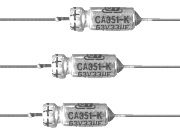Steel Casting Parts,Accurate 3D Printer,3D Print Automotive,3D Print Engineering Guangdong Fenghua Zhuoli Technology Co., Ltd , https://www.fhzl3dpequip.com To date, lithium-ion batteries rely on liquid electrolytes that exist between the positive and negative poles of the battery to conduct ions. Since the liquid electrolyte is flammable, especially in the case of research and development of a smaller battery with a higher energy storage, it is hoped that a battery with a solid electrolyte will be sought to solve the battery safety problem and size limitations.
To date, lithium-ion batteries rely on liquid electrolytes that exist between the positive and negative poles of the battery to conduct ions. Since the liquid electrolyte is flammable, especially in the case of research and development of a smaller battery with a higher energy storage, it is hoped that a battery with a solid electrolyte will be sought to solve the battery safety problem and size limitations.
Scientists at Oak Ridge National Laboratory on January 23 said that for the first time, they successfully developed high performance nanostructured solid electrolytes for higher energy density lithium-ion batteries. Solar and wind energy have intermittent characteristics. New research lays the foundation for the use of these renewable energy sources to recharge electric vehicle batteries and energy storage batteries.
Scientists at the Oak Ridge National Laboratory and research leader of the solid-electrolyte battery project, Liang Chengdu, said that in order to obtain a safer, lighter battery, safety issues need to be kept in mind at the time of initial design. In the study, they started with conventional materials with high stability in the battery system, especially materials that are compatible with lithium metal anodes. A battery using pure lithium metal as an anode is expected to provide 5 to 10 times more power than a battery using a carbon-based anode. Liang Chengdu said that the high activity of lithium metal in the flammable liquid organic electrolyte charge and discharge cycle hidden a serious safety problem, the solid electrolyte allows lithium metal in a safe environment to complete the charge and discharge cycle.
The research team developed a solid electrolyte by processing lithium thiophosphate, which has an ion conductivity 1000 times that of its natural bulk conductivity. When they processed lithium thiophosphates, they used nano-structured chemical processing methods that changed the structure of the raw materials.
The research paper's collaborator, Adam Rindynon, said that before and after the processing of lithium thiophosphate can be regarded as a comparison between quartz crystal blocks and fine beach sand. After processing, the total amount of electrolytes and raw materials is the same, but it is a very small particle. The combination. The solid electrolyte is composed of nanometer-sized particles, and has a stronger ion conductivity than the original crystal structure.
Now, scientists are testing experimental solid electrolyte rechargeable batteries while waiting for approval of patents for their research results. Rong Dinong believes that due to the adoption of room-temperature and solution-based chemical reaction processing methods, the solid electrolyte can be easily scaled.